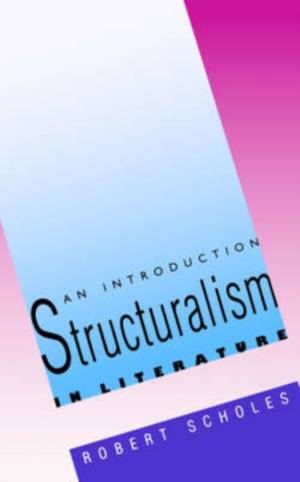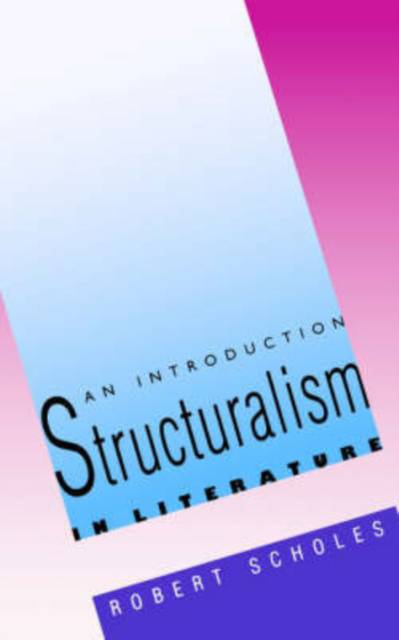
- Afhalen na 1 uur in een winkel met voorraad
- Gratis thuislevering in België vanaf € 30
- Ruim aanbod met 7 miljoen producten
- Afhalen na 1 uur in een winkel met voorraad
- Gratis thuislevering in België vanaf € 30
- Ruim aanbod met 7 miljoen producten
Zoeken
Omschrijving
From time to time a current of thought sweeps through a culture and moves its most disparate elements in the same direction. Such a current is structuralism. Reacting against "modernist" alienation and fragmentation, it is an integrative and holistic way of looking at the world; it seeks reality not in individual things but in the relationships among them. Its aim, says Robert Scholes, is nothing less than the unification of all the sciences into a new system of belief.
The impact of structuralism on literature and literary study is the concern of this extraordinarily lucid book. Mr. Scholes explores the linguistic background of structuralism, its historical connections to romanticism and Russian formalism, and the theory and practice of the leading contemporary structuralist literary critics.
"In Scholes's book we have beautifully lucid, and at the same time intelligently critical, accounts of such areas of controversy as Jakobson and Riffaterre on Baudelaire's Les Chats; Jolles's Simple Forms and the drama speculations of Souriau; Propp on the folktale . . . and other Russian 'formalist' critics; Lévi-Strauss on myth; Greimas, Bremond and Todorov on narrative structure and Barthes and Genette on analysis of the meaning-structure of a literary text. . . . Those already persuaded of the importance of the field will see this book as . . . perhaps the most valuable general work available."
-- Times Higher Education Supplement
The impact of structuralism on literature and literary study is the concern of this extraordinarily lucid book. Mr. Scholes explores the linguistic background of structuralism, its historical connections to romanticism and Russian formalism, and the theory and practice of the leading contemporary structuralist literary critics.
"In Scholes's book we have beautifully lucid, and at the same time intelligently critical, accounts of such areas of controversy as Jakobson and Riffaterre on Baudelaire's Les Chats; Jolles's Simple Forms and the drama speculations of Souriau; Propp on the folktale . . . and other Russian 'formalist' critics; Lévi-Strauss on myth; Greimas, Bremond and Todorov on narrative structure and Barthes and Genette on analysis of the meaning-structure of a literary text. . . . Those already persuaded of the importance of the field will see this book as . . . perhaps the most valuable general work available."
-- Times Higher Education Supplement
Specificaties
Betrokkenen
- Auteur(s):
- Uitgeverij:
Inhoud
- Aantal bladzijden:
- 230
- Taal:
- Engels
Eigenschappen
- Productcode (EAN):
- 9780300018509
- Verschijningsdatum:
- 10/09/1975
- Uitvoering:
- Paperback
- Formaat:
- Trade paperback (VS)
- Afmetingen:
- 132 mm x 203 mm
- Gewicht:
- 272 g

Alleen bij Standaard Boekhandel
+ 43 punten op je klantenkaart van Standaard Boekhandel
Beoordelingen
We publiceren alleen reviews die voldoen aan de voorwaarden voor reviews. Bekijk onze voorwaarden voor reviews.











